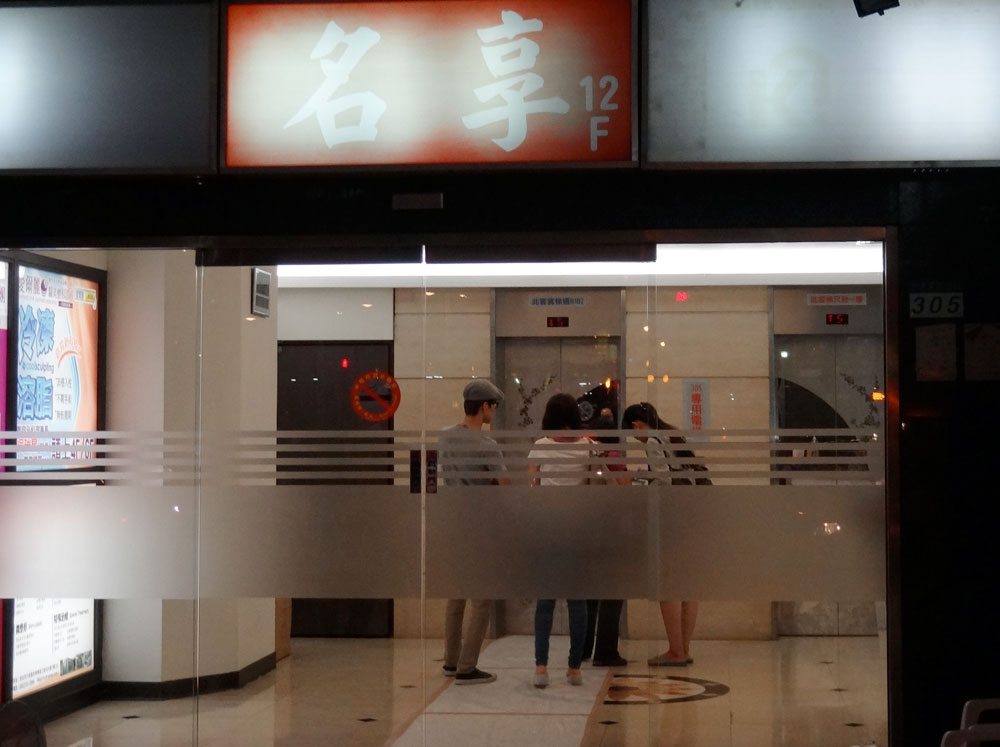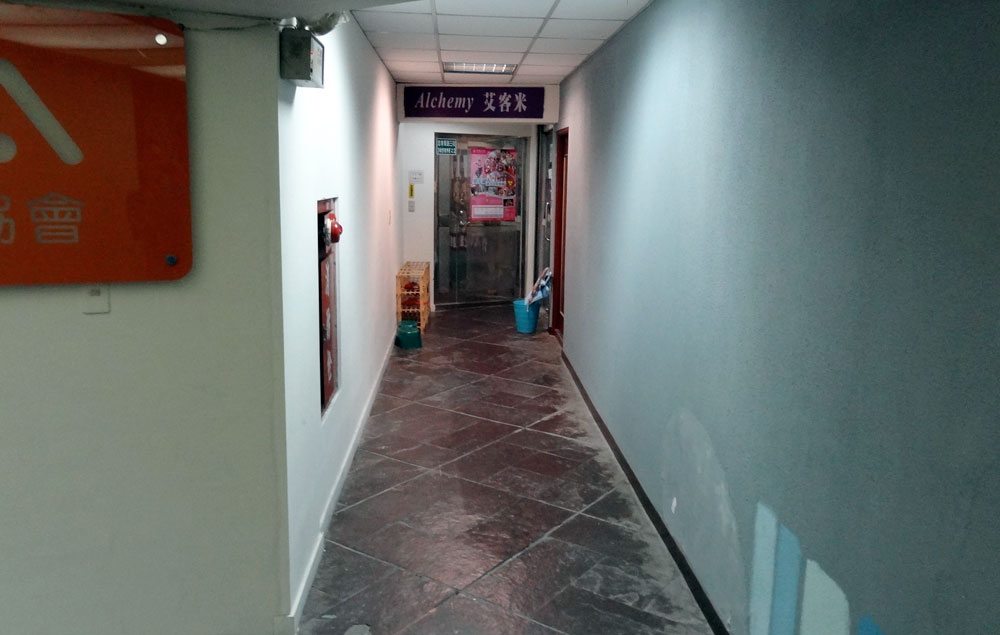
If you happen to be visiting Taipei, you can take the subway to the Zhongxiao Fuxing Station and come out from Exit #1, across the street from the fancy SOGO department store (the newer one, not the older one just down the street near exits #3 and #4). On the corner of the busy intersection you’ll find a very tall rounded building which looks like a cross between an office building, a hotel, and a billboard, with an unobtrusive door tucked away next to what is currently an Esprit store.
Go inside and hop on the elevator to the ninth floor, where you will be greeted by a somewhat shabby, dimly lit hallway angling off to your left. At the end of the hall is a sign that reads “Alchemy ???.”

Through that door is a small room — probably smaller than my own basement, and most likely smaller than anything you’d think of as a hobby game store — crammed literally floor to ceiling with board games. There are a few very small tables to one side where you can play Magic, and the cash register (and a few more games) are squeezed into a space behind the stack of games. Welcome to Alchemy Games.
In many ways, my journey to Alchemy Games — not the sort of place you would just stumble upon — mirrors my quest for more information about board games themselves in Taiwan. I have family in Taiwan and have visited several times in my life, and my exposure to games has been limited to Go, Chinese chess, and Mahjongg (the actual Rummy-like game, not the tile-matching version you’ve played on your computer, which is like referring to Memory as “Poker” because it uses the same cards). I also knew there was a Chinese version of Monopoly that’s been around for ages. But other than that, I was not aware of any board game culture in Taiwan.

Now, this is a culture for which Chinese chess and Go — two ancient, elegant games — are deeply ingrained, even for those who don’t play. I found a PSA billboard in a subway station that used Chinese chess as a metaphor, and it’s assumed that everyone knows what those pieces are. Mahjongg is like Rummy on steroids (or perhaps I should say that Rummy is like Mahjongg Lite) — the scoring actually involves exponentials and is based on probabilities of certain combinations — so complexity is definitely not something that Chinese and Taiwanese are scared of. And yet, aside from Monopoly, I had rarely seen any indication that Western board games had taken root there.

Three years ago I’d half-heartedly looked for board games in toy stores, bookstores, department stores … and generally come up empty. Part of the problem was that the people I was around the most — my family — didn’t have any experience, and didn’t know where to point me. As a matter of fact, I didn’t even know how to say “board games” in Chinese. My parents didn’t know. My Chinese dictionary (as seen to the left here) didn’t help. I mentioned before that a typical term used by many is “???,” basically the Chinese name for Monopoly.
It wasn’t until I came across this article in Taiwan Today, “Board Games Gain Popularity in Taiwan,” that I had any indication that Eurogames had made the leap to Asia. But after reading that, I was on a mission: I wanted to find some game stores in Taipei, see what games people were playing, and maybe acquire a few Taiwanese-made games for myself.
I tried writing to Aaron Hsu, the author of the Taiwan Today article, but wasn’t able to get in touch with him. That made it trickier to get more information on things he mentioned like the Board Game Association or TwoPlus Studio, a local board game company, because searching for those terms in English doesn’t turn up the results I’m looking for. And, like I said, I still didn’t know how to look up “board games” in Chinese. Instead I turned to Board Game Geek, where I found a handful of game store recommendations — a far cry from the “over 60” that Hsu cites in the article, but I was only going to be in Taiwan for a few weeks and most of those would be spent sightseeing and doing family activities.
What I found was that board gaming is alive in Taiwan, though it’s still in its early, awkward stages. It’s not widespread yet, for reasons I’ll get to, and there are some distinct differences in the hobby from what I’m used to in the States. Read on and I’ll tell you a little about the game stores I encountered … and how to say “board games” in Chinese.


